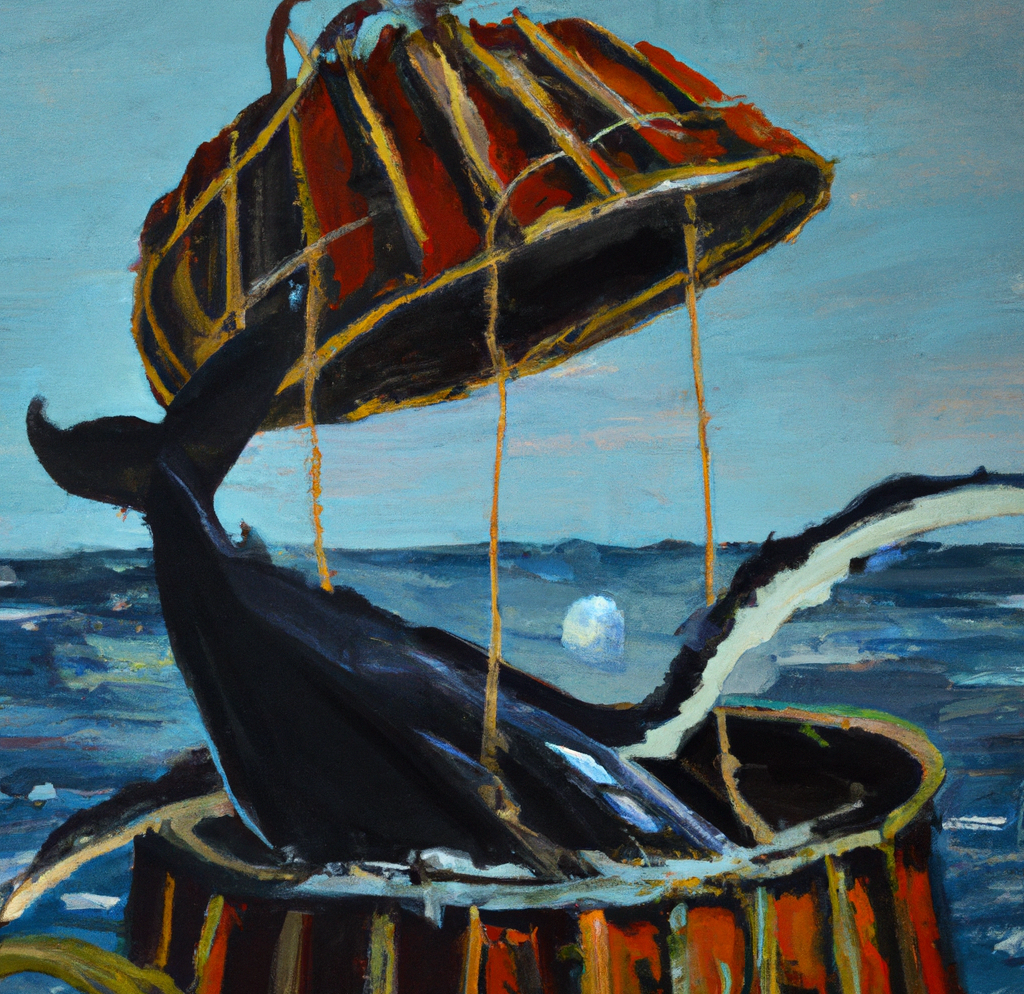Graceful giants
roam through
endless seas:
searching,
singing,
soaring,
oblivious to iron webs
that glitter
beneath sinking sighs.
Thrashing tails now echo
in the deep,
silenced songs
trapped in lines
they never sought
to see.
We break the past
with Occam’s blade,
severing the snare
to buoy both
beast
and bounty.
Leviathans glide
through
heaving waves
that sway,
expand,
and breathe
anew.
This poem is inspired by recent research, which has found that reducing fishing gear could save whales with low impacts to California’s fishing industry.
Whales and fishing industries coexist in the vast oceans, but not always harmoniously. The majestic humpback whales sometimes find themselves tangled in fishing gear, a situation perilous for the whales and problematic for fisheries. Traditional methods to manage these challenges involve set rules that don’t change, even though the ocean and its inhabitants are always in motion. Another approach, called dynamic ocean management, uses up-to-date data to make timely decisions for managing these problems. However, this method can be expensive, data-heavy, and challenging to apply, raising questions about its effectiveness compared to the established practices, especially when the safety of endangered species and essential fisheries is at stake.
In this study, researchers examined the issue of humpback whales getting entangled in the gear of California’s profitable Dungeness crab fishing industry. They compared the traditional static management methods and the more modern dynamic management strategies to find out which is more effective in reducing these entanglements. Surprisingly, the study found that simply reducing the amount of fishing gear in the water was more effective than using complex, data-driven management strategies. This straightforward solution maintained uninterrupted fishing seasons and high catch rates while significantly lowering the risk of whale entanglements. The researchers suggest that such clear, uncomplicated approaches could be more beneficial for both marine life and fisheries across the globe, offering a viable solution to a complex and global issue.
Discover more from The Poetry of Science
Subscribe to get the latest posts sent to your email.

Wonderful, sadly true. If we don’t fine the fishing industry for their “pollution” of dis- guarded nets and floats, they won’t stop.